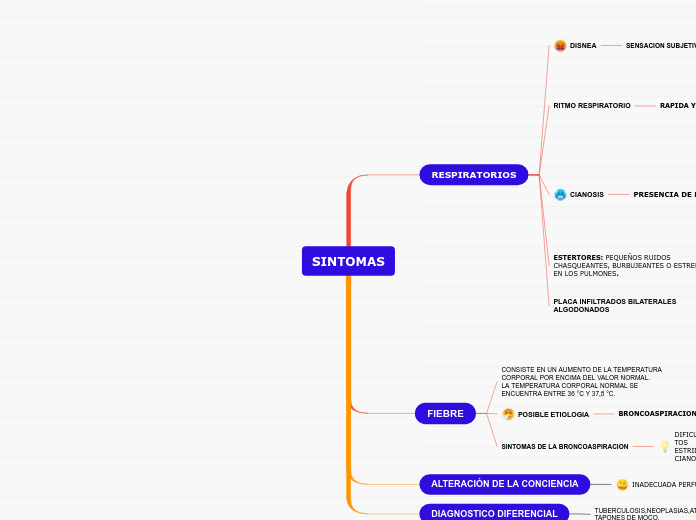by Lady Johanna 5 years ago
298
SINTOMAS
El texto trata sobre diversos síntomas y condiciones respiratorias, comenzando con la fiebre, que se describe como un aumento de la temperatura corporal más allá de los parámetros normales.

by Lady Johanna 5 years ago
298

More like this

To name your story, you have to think about the overall message and what you want your audience to understand from the story. Also, make it relevant and easy to remember.
The middle of the story is where you add layers of complications that will lead to the end. Reveal more about the character's journey. Did their personality go through changes? How did they overcome the challenges? And as you build up the story’s central conflict, make it more personal to that character. Also, from the middle act, you have to lead into the final act.
There wouldn't be any tension and excitement in your story if there weren't any obstacles in your character's way.
A story is nothing more than a character overcoming a series of difficulties to reach the desired goal. Obstacles usually create suspense and conflict. In overcoming obstacles, there is growth: weak becomes strong; hatred turns into love; sadness into happiness; wrong into right; lies into truth; or evil becomes good.
See a few examples below:
Your character(s) need(s) motivation in order to solve the challenge(s).
Why does your character need to confront this challenge? What does he/she expect to accomplish by solving it?
See a few examples:
CONSISTE EN LA ASPIRACIÓN ACCIDENTAL DE SÓLIDOS O LÍQUIDOS POR LA VÍA AÉREA.
Each story has a main character and that character usually needs to solve a problem or challenge. The character's challenge is the one that creates tension throughout the story.
In the beginning of the story (or the exposition), you will need to introduce the setting and characters. You might also want to introduce the main conflict. This part of the story is important because it gives the reader necessary background information and maybe even a first insight into a character’s personality.
ESTÁN RELACIONADOS CON PROCESOS QUE AFECTAN AL ESPACIO AÉREO PULMONAR Y APARECEN COMO OPACIDADES COALESCENTES, ALGODONOSAS, MAL DEFINIDAS, HOMOGÉNEAS O NO, SE OBSERVA UN BRONCOGRAMA AÉREO.
DENOMINADOS "DE BURBUJA FINA ". COMUN EN : NEUMONIA, EDEMA DE PULMON, FIBROSIS PULMONAR.
PERIFERICA
ESTASIS VENOSO
ISQUEMIA
CENTRAL
ORIGEN CARDIACO
ORIGEN PULMONAR
TRANSTORNO VENTILACIÓN/PERFUSIÓN
BLOQUEO ALVEOLO/CAPILAR
CARACTER OBSTRUCTIVO/RESTRICTIVO
The setting (time & place) of a story can change throughout the plot.
The weather is an important element in your story because it can highly influence the ambiance and the mood of the characters.
KUSSMAUL
The most affected character is the main character. Write down here if he/she is affected by these weather conditions in any way. For example, if they lost a family member or their home during a hurricane, etc.
CHEYNE-STOKE
HIPERVENTILACION/HIPOVENTILACION
Decide if you want to include an element of nature in your story. For example, a rainbow can be a very nice choice for a happy ending. The mist in a story can represent mystery and secrets. A thunder can appear in the background at the moment when the 'bad guy' of the story makes its appearance, etc.
RESPIRACION NORMAL
Does your story include catastrophic weather? See a few suggestions below or add your own:
- hurricane, earthquake, storm, etc
Characters are essential to a good story. Usually, the protagonist(s) is/are the most affected by the plot. Introduce a character by focusing on their actions, interests, and occupation, as the physical appearance doesn't make a difference in most cases.
Type in the name of your character.
POLIPNEA/ORTOPNEA
What is your character's main goal?
HIPERPNEA/HIPOPNEA
Which traits best describe the character's personality? Choose more if necessary:
TAPQUINEA/BRADIPNEA
Choose the type of your chacter: